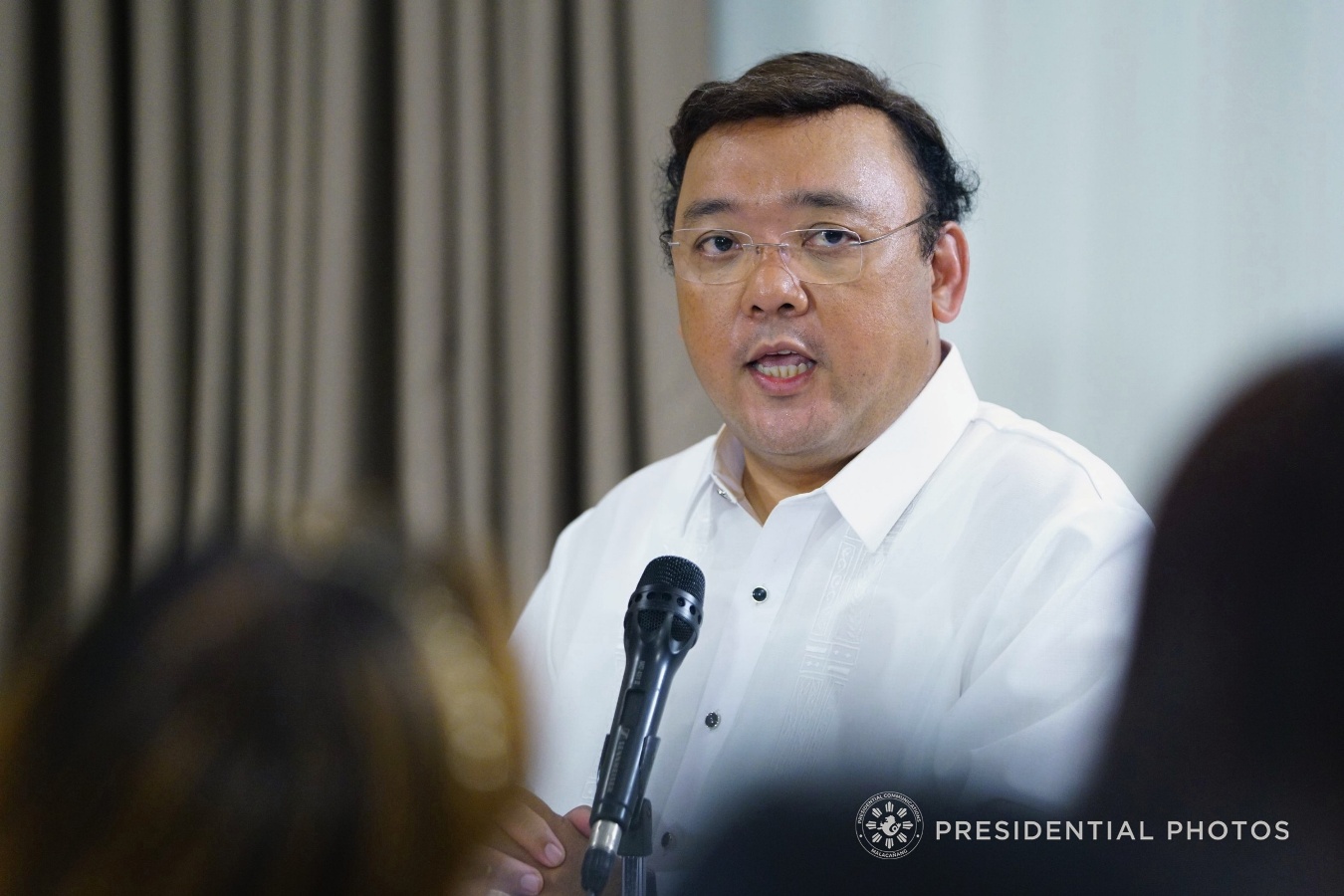Headline
‘No draconian provisions’ in anti-terrorism bill: Palace

FILE: Presidential Spokesperson Harry Roque Jr. at the Presidential Guest House in Panacan, Davao City on January 4, 2018, JOEY DALUMPINES/PRESIDENTIAL PHOTO
MANILA – Malacañang assured that there are no “draconian provisions” in the bill which is meant to beef up the country’s law against terrorism.
Presidential Spokesperson Harry Roque made this statement after President Rodrigo Duterte on Monday certified the measure as urgent.
“Wala naman pong draconian na provision diyan. Lahat po ng provision diyan ay ibinase rin natin sa mga batas na mga iba’t ibang bansa na mas epektibo po ang kanilang pagtrato dito sa mga terorista (There is no draconian provision there. All of those provisions are based on laws of other countries that are effective in fighting terrorists),” he said in a virtual presser on Tuesday.
Compared to anti-terrorism laws in other countries, Roque said the country’s Human Security Act of 2007, also known as Republic Act (R.
A) 9372, is the most tame.
“Mayroon po tayong three volume books na pinablish ng Cambridge na kinukumpara ang mga anti-terrorism law sa buong mundo at isa po talaga sa pinakamaluwag na batas ang batas natin dito sa Pilipinas iyong Human Security Act (We have three volume books published by Cambridge comparing the anti-terrorism laws of countries around the world and one of the most lenient laws is the Philippines’ Human Security Act),” he said.
Roque said the anti-terrorism bill, which repeals the Human Security Act, is based on laws in countries such as in the US, Europe, and Australia.
He also pointed out that the Philippines is no stranger to terrorism, citing the 2017 Marawi City siege and the Abu Sayyaf’s attacks in Sulu.
Meanwhile, Roque recognized questions raised on the timing of the decision of President Rodrigo Duterte to certify the legislation as urgent, but noted that anti-terrorism bills were “not passed into law” during the previous Congress.
“Alam ko po panahon ng Covid, pero itong mga bills naman pong ito ay naisampa na noong 17th Congress pa, hindi lang naisa-batas noong 17th Congress (I know it is the time of Covid-19 but these bills were filed during the 17th Congress but weren’t passed into law at the time),” he said.
Opposition senators and some sectors have raised concern over the possible abuses by law enforcement authorities once the anti-terrorism bill is approved.
However, Defense Secretary Delfin Lorenzana dismissed these criticisms as “baseless” since human rights are ensured under the measure’s provisions.
Lorenzana also scored communist rebels and their allies for painting a negative impression on the anti-terrorism bill, noting that the measure has “safeguards of civil liberties and sanctions to law enforcement agencies.
”
He also assured that the measure will not be used against the political opposition and progressive groups.
In February, the Senate passed Senate Bill 1038 or proposed Anti-Terrorism Act of 2020 on third and final reading. Two committees at the House of Representatives approved their version of the measure, which is similar to the Senate version on Friday (May 29).
Under the bill, persons who shall threaten to commit terrorism and those who will propose any terroristic acts or incite others to commit terrorism shall suffer imprisonment of 12 years.
Suspected persons can be detained for 14 days without a warrant of arrest with an allowable 10-day extension.
A 60-day surveillance on suspected terrorists can also be conducted by the police or the military, with an allowable 30-day extension.
Videoconferencing for the accused and witnesses will also be allowed under the measure.





















